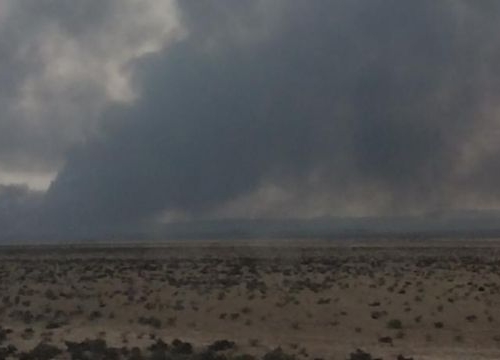Protecting the Environment in Situations of Armed Conflict
Geneva Academy Talks


UNEP
It goes without saying that there can be no sustainable human life without the natural environment, and yet such an environment is too often degraded because of armed conflict.
Armed conflicts can lead to environmental degradation or destruction (such as the contamination of land and soil) with effects frequently extending over large areas, including to water resources, thus contributing to the increased vulnerability of the affected populations that can last for years and even decades.
This online IHL Talk will provide an overview of the rules of international law providing protection to the natural environment and seeking to limit the damage caused by it, as well as of initiatives aimed at clarifying and/or reinforcing such rules. Panelists will also discuss avenues for the criminalization of prohibited behaviours, notably through the crime of ecocide.
Moderator
- Öykü Irmakkesen, PhD Candidate, University of Geneva and Teaching Assistant, Geneva Academy
Panelists
- Jérôme de Hemptinne, Lecturer at the Geneva Academy and at the Universities of Louvain, Strasbourg and Lille
- Marja Lehto, Ambassador and Senior Expert on Public International Law, Legal Service of the Ministry of Foreign Affairs of Finland, and Member, International Law Commission
- Vanessa Murphy, Legal Adviser, International Committee of the Red Cross
- Maud Sarliève, Human Rights and International Criminal Lawyer
How to Join the Discussion
To attend this online IHL Talk you will need to make sure you have downloaded Zoom on your computer or device, if you haven’t installed Zoom yet, you can do so here.
You need to register in order to receive the link to this online IHL Talk. Once registered, you will receive a confirmation email and the link to the online IHL Talk will be sent to you 24 hours prior to the event.
On the day of the event, please click on the link which will connect you to the event. If you haven’t downloaded Zoom, you may be requested to do so.
Asking Questions to Panelists
You can use the chatbox to ask your questions, the moderator will make a selection of questions at the end of the presentations. There will be no possibility to interact by webcam and microphone in order to avoid connexion issues.
About IHL Talks
The IHL Talks are a series of events, hosted by the Geneva Academy, on international humanitarian law and current humanitarian topics. Every two months, academic experts, practitioners, policymakers and journalists discuss burning humanitarian issues and their regulation under international law.
Video
Protecting the Environment in Situations of Armed Conflict
Watch the video where panelists provide an overview of the rules of international law providing protection to the natural environment, as well as of initiatives aimed at clarifying and/or reinforcing such rules.








